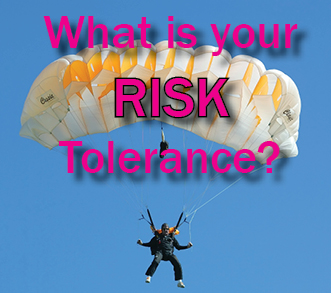
Key Things to Think About when Buying or Selling a Dry Cleaning Business
By Jacquelyn Stevens
Negotiating the sale of a dry cleaning business, as either the vendor or the purchaser, involves significant time and effort. While most discussions during the sale will focus on the purchase price, the equipment and the business’ goodwill, it is important to also consider and allocate environmental liabilities. Without this consideration, the party who remains ‘on the hook’ or who becomes responsible for environmental liability (perhaps unknowingly) may not be getting as good a deal as they think.
Background on Environmental Liability
Dry cleaners have historically used tetrachloroethylene (perc) as the solvent in dry cleaning machines. While perc is extremely effective at cleaning clothing, it is also a toxic and persistent environmental contaminant. If released into the natural environment, perc accumulates in soil and groundwater and degrades slowly. At high concentrations, perc can also adversely affect human health. While many dry cleaners are moving away from using perc, other solvents may still attract environmental liability.
Dry cleaners and their corporate officers and directors must be aware of two areas of environmental liability – regulatory liability and civil liability:
Regulatory Liability
For perc users, Environment and Climate Change Canada has enacted the Tetrachloroethylene (Use in Dry Cleaning and Reporting Requirements) Regulations under the Canadian Environmental Protection Act, 1999. The Regulation creates offences for: improper storage of perc, improper secondary containment systems, and improper disposal of perc, among others. Dry cleaners can be prosecuted for contraventions of the Regulation. Typical penalties include fines that increase with each conviction. Jail time is also possible.
In most provinces, any spills or release of perc or other dry cleaning solvents/chemicals must be reported under applicable provincial environmental legislation. Prosecutions for offences under these provincial environmental laws may also occur. Dry cleaners must also be aware of any municipal regulations impacting dry cleaning operations.
Civil Liability
Dry cleaners are often sued when dry cleaning chemicals/solvents and degradation products are in soil and have migrated in groundwater from the dry cleaner’s property to an adjacent property. Dry cleaners may also be sued by the landowner, if the dry cleaner is a tenant, for contamination at the property where the dry cleaner operates. Such lawsuits often include claims against all current and prior owners and operators of the dry cleaning business, and current and prior owners of the property where the dry cleaner is located. If the claim is successful, the dry cleaner(s) and or the property owner may be liable for either the cost to remediate the contaminated property and/or the cost of diminution in value of that property.
Concurrent Liability
Regulatory liability and civil liability are not mutually exclusive. Dry cleaners may face both types of liability concurrently. Corporate officers and directors with management and control of a dry cleaning business may also be named in any legal proceeding. The recent case of Alizadeh v Ontario (Ministry of Environment, Conservation and Parks) affirms that the evidentiary burden on a corporate director to rebut a presumption of management and control is extremely high. Individuals with control of a pollutant may also be held liable. In Midwest Properties v Thordarson, the Ontario Court of Appeal found an individual who had control over a contaminant liable to pay damages under Ontario’s Environmental Protection Act. The contaminant migrated off-site, impacting a neighbouring property.
Sale of Land vs. Sale of Business
In order to evaluate and minimize liability, it is important to first consider what the vendor is selling. Is the vendor selling a piece of property and its dry cleaning business? Only the property where there is or was a dry cleaning business? Or only the dry cleaning business?
Regulatory and civil liabilities are not limited to the current operator of a dry cleaner, and past practices by dry cleaners can come into play.
A purchaser of a piece of property that has been historically used for on-site dry cleaning may inherit environmental liability because of previous contamination at the property. A purchaser of a dry cleaning business may inherit any liability the business has previously incurred.
The vendor should consider what the vendor is selling and, if applicable, what the vendor is keeping. For example, if the vendor sells only the dry cleaning business but continues to own the property, the vendor may continue to hold environmental liability, or may attempt to transfer some or all of that liability to the purchaser of the dry cleaning business.
Environmental Disclosure
Disclosure is an essential part of any sale, and environmental disclosure is no different. The vendor and the purchaser should carefully consider what, if any, environmental disclosure is being made and what, if any, reliance is being put on that disclosure.
Vendors of property must disclose known latent defects at the property that a reasonable person would agree are material in the circumstances. A latent defect is any defect that is not readily identifiable by the prospective purchaser, but is within the knowledge of the vendor. Generally, environmental issues involving indoor air quality, soil impacts and groundwater contamination are latent. Where a vendor knows about latent environmental impacts, the vendor must disclose.
Where there is no known latent environmental defect, the vendor may warrant that, to the vendor’s knowledge, the vendor is not aware of any spills or contamination at the property. Similarly, where there is no known latent defect, the vendor may choose to make no representation about the site condition. In either case, the purchaser may have the option (or as is becoming more common, the obligation) to satisfy itself through its own tests about the environmental condition of the property.
Environmental Liability Considerations as a Vendor
While the potential environmental liabilities will be evaluated on a site-specific and case-by-case basis, some questions a vendor should consider during the sale are:
- What environmental disclosure am I providing?
- What environmental representations and warranties am I providing that the purchaser is relying on?
- Is the sale proceeding on an ‘as is, where is’ basis?
- Am I obligating or allowing the purchaser to conduct any inspections or investigations?
- What will occur if contamination is found in the future? And who will be responsible?
- Am I providing an indemnity to the purchaser for losses arising from contamination that I may have caused?
Environmental Liability Considerations as a Purchaser
As discussed above, potential environmental liabilities will be evaluated on a site-specific and case-by-case basis. Some questions a purchaser should consider while negotiating the purchase are:
- What environmental disclosure is the vendor providing?
- Do I need to seek further information to be comfortable with the environmental condition of the property?
- What environmental representations and warranties is the vendor providing?
- What right of access and inspection do I have to confirm the vendor’s representations and warranties?
- Is the property currently known to be contaminated? Is the contamination flowing off the property?
- Is the liability of the vendor and/or other previous owners or operators going to transfer to me?
- Should I seek an indemnity or a security from the vendor for any potential remedial costs, or future regulatory or litigation costs?
Conclusion
Vendors and purchasers should always consider environmental liability when evaluating the sale or purchase of a dry cleaning business and/or the land upon which a dry cleaner operated. Both parties must be aware of the potential for regulatory and civil liability, and should attempt to allocate the risk of this liability in their agreements for the sale or purchase. Without this evaluation and allocation of risk, one or both of the parties may carry forward unknown and/or unwanted environmental liabilities. Just because a property is not ‘clean’ does not mean that the investment isn’t right for you, it all depends on the risk tolerance of the vendor and purchaser, and the risk allocation to create a ‘good deal’.

Jacquelyn Stevens is a Partner and Specialist in Environmental Law Certified by the Law Society of Ontario, Willms & Shier Environmental Lawyers LLP
Tel.: 416-862-4828 • Email: jstevens@willmsshier.com
Prepared with the assistance of Anand Srivastava, Associate, and Amanda Spitzig, Student-at-Law, Willms & Shier Environmental Lawyers LLP.
For more information or to set up an appointment, please contact Jacquie by telephone or by email. The information and comments herein are for the general information of the reader only and do not constitute legal advice or opinion. The reader should seek specific legal advice for particular applications of the law to specific situations.
Document #: 1660754







It’s very good information pertaining to buying or selling a dry cleaning business.
I will pass the information on to my buyers and sellers.